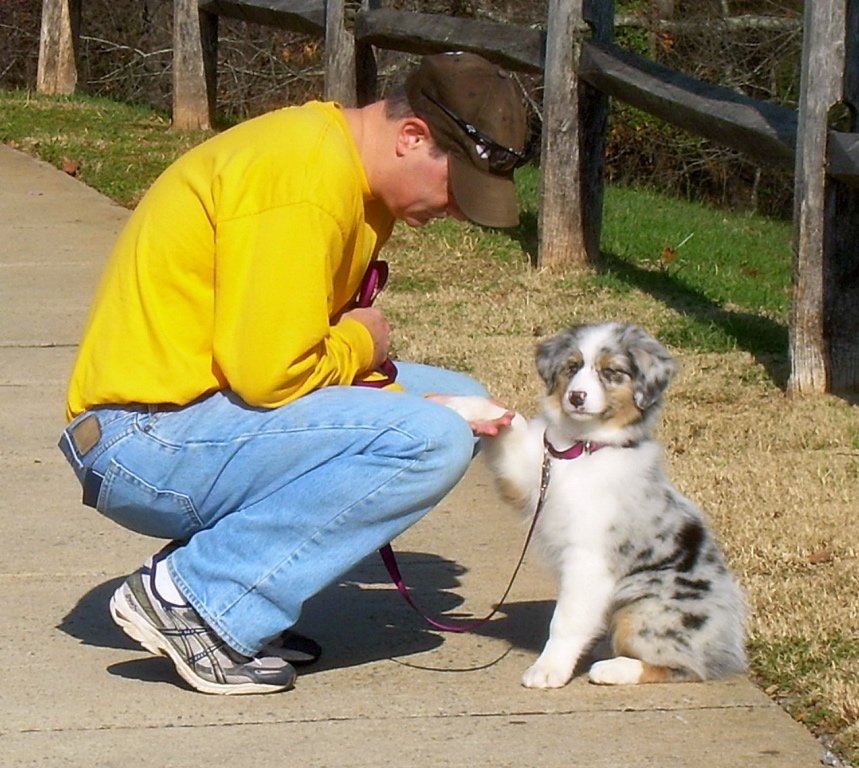Choosing The Right Trainer for Your Dog or Cat
Experience & Philosophy matter when it comes to your best friend.
How do you choose a good trainer?
There are many sources for information about trainers but how do you dissect this information to make an informed choice about the best trainer for you and your pet?
In the initial process of choosing it is wise to ask for referrals from your veterinarian or trusted friend who had a good experience and outcome. In addition, check the Better Business Bureau for information on any specific training organization. They tend to have less ‘fake’ reviews on their website as they investigate complaints and are geared toward resolving problems with products/services.
Once you have narrowed down some choices -- ask questions ~
Where did the trainer obtain their knowledge of animal behavior, training and behavior modification (if they offer this type of service). There is no one source that is better than another. There are many excellent trainers who have independently studied animal learning and behavior and are able to effectively apply the knowledge and skills.
There are also several different schools available including Victoria Stilwell Academy, Academy for Dog Trainers, CATCH Canine Trainers Academy and Karen Pryor Academy. Asking questions about a trainer's individual credentials is necessary. If they are certified, ask who is the organization that has certified them and what is required for certification. Asking questions will help you to make an informed choice about who you hire.
What credentials do they have? The only national certification available in the United States is the Certification Council of Professional Dog Trainers. They require 300 hours as a lead instructor to be eligible to sit for their exam. National certification means that this body certifies anyone who can meet the requirements AND pass the national certification exam that is administered in a secured regional testing facility. This ensures that the tests are administered in a uniform way with no ability to tamper with the results.
Understanding credentials --
There are many different terms buzzing around the dog training / behavior community and we often hear clients refer to a 'behaviorist', 'behavioralist', 'pet psychologist' etc. A Certified Professional Dog Trainers is a trainer that is certified by The Certification Council of Professional Dog Trainers. A Certified Professional Dog Trainer is not a 'behaviorist'.
A Veterinary Behaviorist is a Veterinarian who has advanced education in animal behavior. A 'Certified Applied Animal Behaviorist' refers to a person who has supervised graduate training in animal behavior, zoology and learning theory at accredited universities. Some are veterinarians who have completed a residency in animal behavior. Certified Applied Animal Behaviorists are full time professionally educated animal behaviorists.
The dog training profession currently has no federal or state regulations. Anyone can advertise themselves as a trainer regardless of their methods, experience, expertise or ethics.
If possible, observe the trainer ~
Are you comfortable with how the trainer is interacting with both pets AND people? Many people can successfully train an animal. What takes knowledge, skill and expertise is being able to guide YOU and your pet to a well-balanced, successful relationship which fosters the training process.
Most of all, if you ever are uncomfortable with anything that a trainer is suggesting or doing with your dog, SPEAK up! You are your pet's advocate!
DO NOT PAY UP FRONT FOR SERVICES AND BE EXTRA VIGILANT IF YOU ARE SEEKING BOARD & TRAIN OPTIONS. Check out our links page for recommended options for this.
We are proud that a large portion of our clientele came to us through recommendations of current and previous clients and local veterinarians.

